Question And Answer
Publications
Articles, publications, books, tools and multimedia features from the U.S. Institute of Peace provide the latest news, analysis, research findings, practitioner guides and reports, all related to the conflict zones and issues that are at the center of the Institute’s work to prevent and reduce violent conflict.
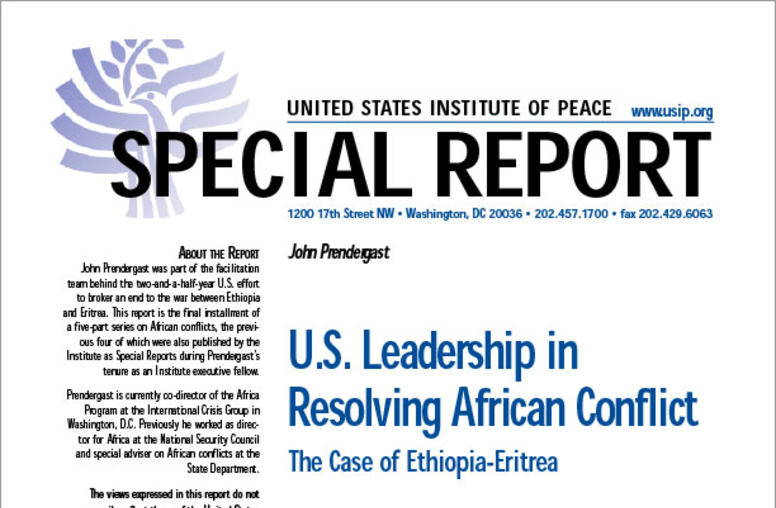
U.S. Leadership in Resolving African Conflict: The Case of Ethiopia-Eritrea
John Prendergast was part of the facilitation team behind the two-and-a-half-year U.S. effort to broker an end to the war between Ethiopia and Eritrea. This report is the final installment of a five-part series on African conflicts, the previous four of which were also published by the Institute as Special Reports during Prendergast's tenure as an Institute executive fellow.
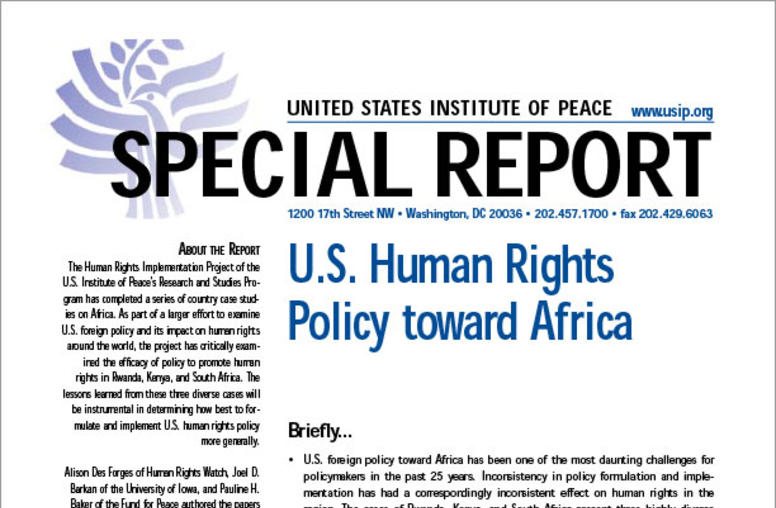
U.S. Human Rights Policy toward Africa
The Human Rights Implementation Project of the U.S. Institute of Peace's Research and Studies Program has completed a series of country case studies on Africa. As part of a larger effort to examine U.S. foreign policy and its impact on human rights around the world, the project has critically examined the efficacy of policy to promote human rights in Rwanda, Kenya, and South Africa. The lessons learned from these three diverse cases will be instrumental in determining how best to formulate an...
Truth Commission: Peru 01
Truth Commission: Truth and Reconciliation Commission Duration: 2001 - 2003 Charter: Supreme Decree No. 065-2001-PCM Commissioners: 12 Report: Public report
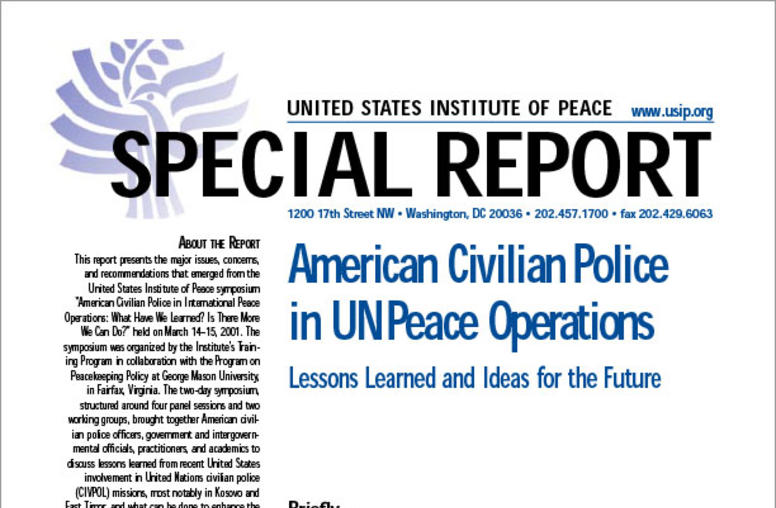
American Civilian Police in UN Peace Operations: Lessons Learned and Ideas for the Future
Summary With the advent of the United Nations missions in Kosovo and East Timor, civilian police (CIVPOL) mandates expanded in scope and scale to assume the full spectrum of executive law enforcement authority, along with the crucial peacebuilding tasks of creating indigenous law enforcement and criminal justice systems based on democratic values and institutions. The Clinton administration's Presidential Decision Directive (PDD) 71 sought to address the "public security gap," creat...
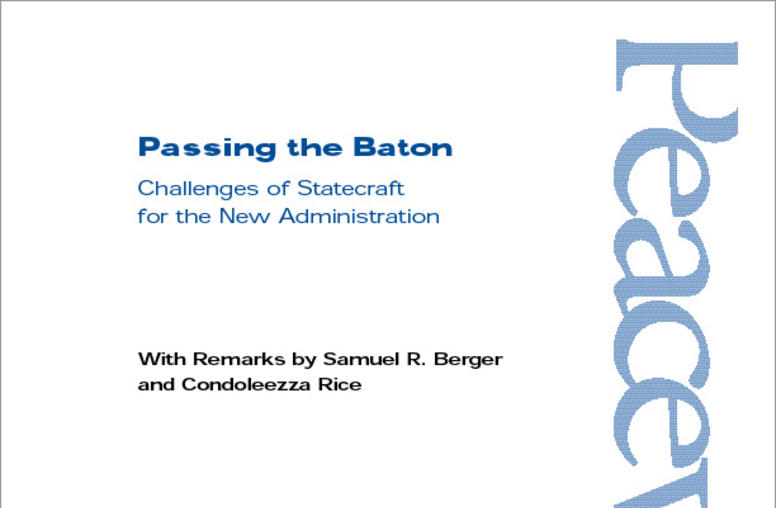
Passing the Baton: Challenges of Statecraft for the New Administration
This report summarizes discussions at a conference of leading officials and specialists on January 17, 2001. The conference program was organized around five panel discussions covering two functional topics (organizing for national security and international conflict management) and three geographic regions of special concern to the United States (Russia, the Balkans, and Northeast Asia).
Peace Agreements: El Salvador
Peace Agreement (Chapultepec) (01-16-1992) Posted by USIP Library on: April 16, 2001 Source Name: The United Nations and El Salvador 1990-1995, United Nations Blue Books Series, vol. IV. (New York: United Nations, Dept. of Public Information, 1995), 193-230. Source Document Number: U.N. Doc. No. A/46/864-S/23501 Date digitized: March 2, 2001 Chapter 1 Chapter 2 Chapter 3 Chapter 4 ...
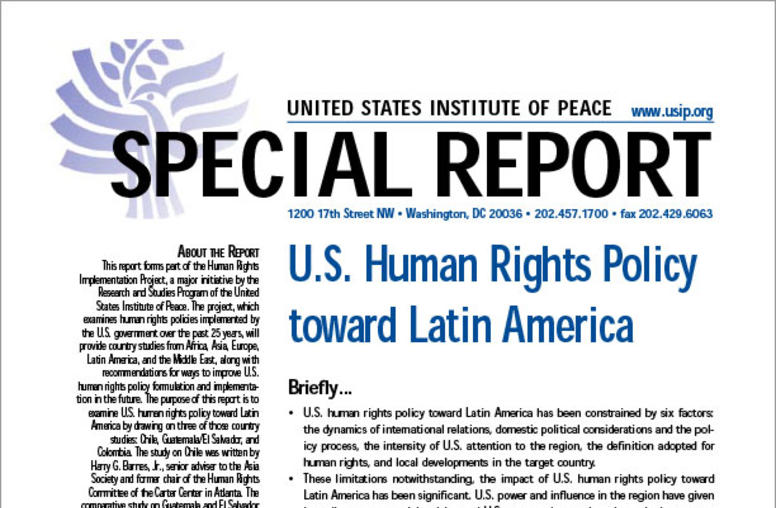
U.S. Human Rights Policy toward Latin America
Summary U.S. human rights policy toward Latin America has been constrained by six factors: the dynamics of international relations, domestic political considerations and the policy process, the intensity of U.S. attention to the region, the definition adopted for human rights, and local developments in the target country.
Truth Commission: Panama
Truth Commission: Panama Truth Commission (Comisión de la Verdad de Panamá) Duration: 2001 - 2004 Charter: Executive Decree No. 2, January 18, 2001 Commissioners: 7 Report: Public report
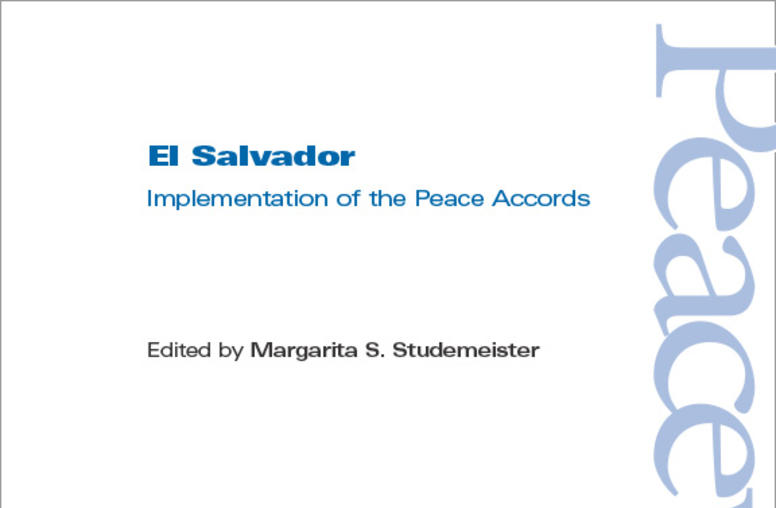
El Salvador: Implementation of the Peace Accords
This report sets out to assess the significance of the implementation of the 1992 Chapultepec Accords nearly ten years after the initiation of negotiations under United Nations auspices.
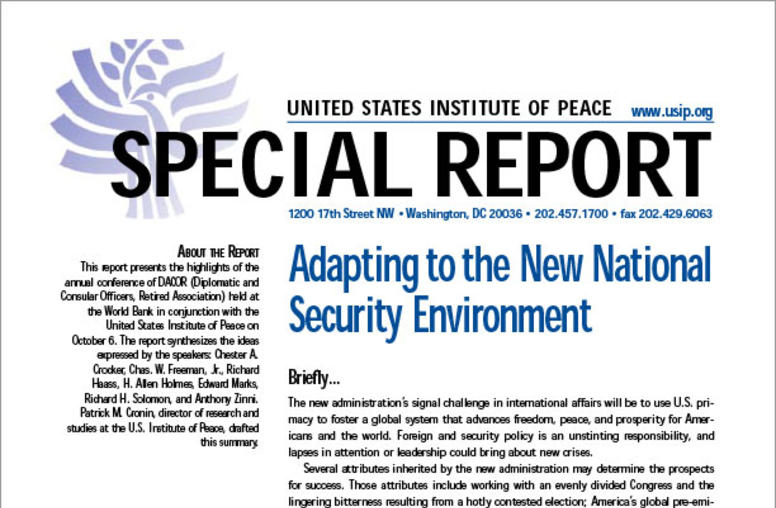
Adapting to the New National Security Environment
Summary The new administration's signal challenge in international affairs will be to use U.S. primacy to foster a global system that advances freedom, peace, and prosperity for Americans and the world. Foreign and security policy is an unstinting responsibility, and lapses in attention or leadership could bring about new crises. Several attributes inherited by the new administration may determine the prospects for success. Those attributes include working with an evenly divided Congres...